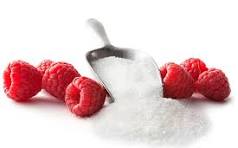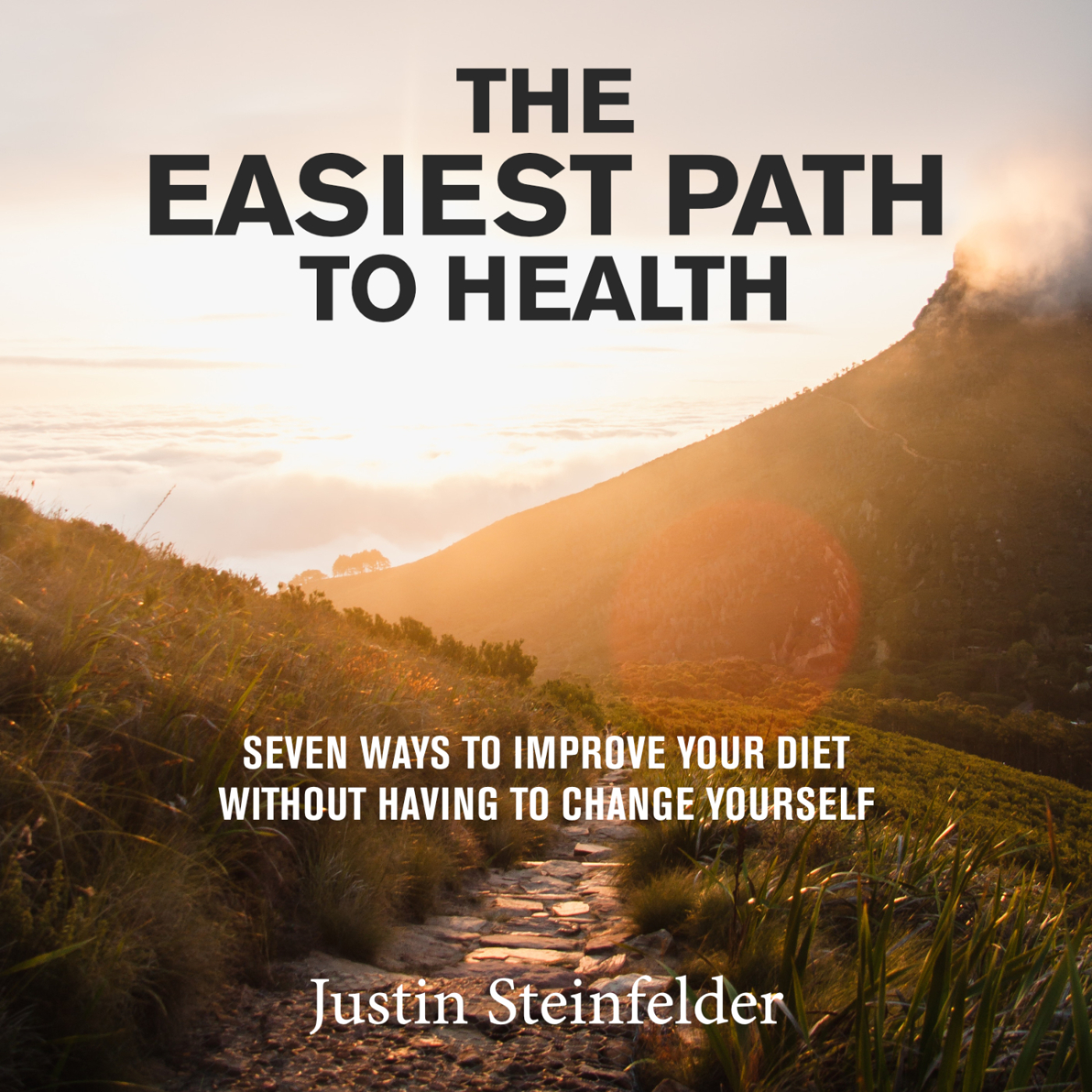Everyone knows that added sugar isn’t healthy.
Nobody says to add more soda to your diet, or that it might be a good idea to put Domino’s cubes in your smoothie. And the consensus science backs this up.
If you look at the reviews or meta-analyses (studies of studies), they converge on a simple piece of advice: eat as little added sugar as possible. All else equal, they conclude, eating added sugar consistently, will likely lower your long-term health prospects.
Where people go wrong isn’t about added sugar per se, but with adjacent topics. Things like the sugar in fruit, fruit juice, and non-nutritive sweeteners like stevia and monk fruit.
In this article, I’ll tell you the four things that people get wrong about sugar, and how to adjust your thinking so this doesn’t happen to you.
Starting with one myth that is particularly rampant: that fruit makes you fat.
Misconception #1: Whole fruit makes you fat because of all that sugar
More accurate: despite often being high in sugar, and despite what you’ve seen on IG Reels, research shows that eating whole fruit does not lead to weight gain, and often leads to weight loss
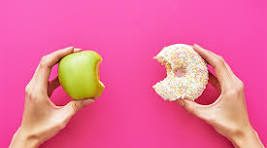
Basically every health organization recommends eating fruit every single day.
This applies even to the organizations most concerned with blood sugar and obesity: the American Diabetes Association (“ADA”). The ADA lists berries and citrus fruit among its “superstar” foods for diabetes.
The reason the ADA— and every other health organization on the face of the earth— recommends eating tons of fruit is not because there is some government conspiracy to eat fruit (as Insta Reels might have you believe), but that it’s where the science points.
A 2014 meta analyses found that “Higher fruit… intake is associated with a significantly reduced risk of type 2 diabetes.” This was then corroborated by a 2016 meta-analysis, and then a 2017 systematic review of the evidence, including 11 randomized controlled trials (the highest quality scientific study), showed, “Consumption of whole fruit…contribute[d] to a reduced risk for long-term weight gain in middle-aged adults”
The bottom line, though often high in natural sugar, whole fruit is correlated with, practically, only good outcomes.
Despite this consensus, the low-carb and keto proponents maintain that eating fruit will make you fat. For example, Gary Taubes in his book, Why We Get Fat says that “If we’re predisposed to put on fat, it’s a good bet that most fruit will make the problem worse, not better.”
This is based on a logical fallacy called a “false equivalence”– assuming that two things that seem similar are exactly the same.
So they will take the findings of the added sugar studies and mistakenly translate their findings to anything that contains sugar. They site a study where rats are fed high-fructose corn syrup, and use that to tell people not to eat grapes. But the science doesn’t support this application.
For instance, in a 2023 review, they find:
“sugar-sweetened beverages show increases in body weight…whereas other food sources of fructose-containing sugars such as fruit are not associated with a harm but rather a benefit.”
Why is fruit different?
One explanation involves not the sugar itself (on a biochemical basis, it’s the same), but what surrounds it in whole fruit. In fruit, sugar is surrounded by a “food matrix” (or “fiber matrix”). This slows digestion, and thus slows the process of the fruit sugars entering your blood stream. This allows the body to regulate insulin production more effectively, and get those sugars into your cells for energy.
Bottom line: the consensus science advises to eat more fruit. When someone gives you a minority viewpoint, like you should lessen fruit because it will make you fat–make them show you the evidence.
Fruit is healthy, but fruit juice.. another story.
Misconception #2: Fruit juice and whole fruit are interchangeable
More Accurate: Fruit juice behaves more similarly to added sugar, while whole fruit consumption has proven healthy (assuming you aren’t overeating calories).
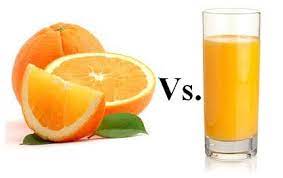
Fruit juice isn’t fruit.
It takes away that “fiber matrix” part crucial to fruit’s benefits. (Note: smoothies with whole blended fruit are more like eating whole fruit. The only concern there is if it leads you to overeat calories since it does part of the “chewing” for you.).
Tim Ferriss is a personal hero.
But in The Four Hour Body, Ferriss makes a misleading point about fruit. Tim says that if you want to lose weight on his diet (“The Slow-Carb Diet”) then you should cancel out all fruit—including whole fruits. He writes:
“There is no consensus on what a “balanced diet” is. My researchers and I tried to find an official definition from the U.S. Department of Agriculture or other federal agencies, and we could not. I have not seen any evidence to suggest that fruits are necessary more than once a week on cheat day.
Not sure how much Tim was paying his researchers, but I’d probably check their credentials. We’ve seen that there is a consensus, and the advice is to eat several servings of fruit per day. So– nah.
But we’ve covered that.
The issue here is how Ferriss tries to prove that fruit (and fructose, a sugar in fruit) is bad. He uses, not whole fruit, but fruit juice.
Ferriss, ever the showman, straps himself with a glycometer—a machine that monitors blood sugar levels— to “prove” his point. Then, rather than eating, say, whole oranges or blueberries or honeydew, or literally any whole fruit, he guzzles down a class of pulp-free OJ. It’s like, pulp free, Tim? Couldn’t even get ‘Some Pulp’ in there?
This is another false equivalence. It’s also a “straw man”– making an artificially weak case of the opposition so you can easily dismantle it.
Whole fruit and fruit juice impact the body in far different ways. Fruit juice—like Orange juice—behaves similarly to SSBs. This is why the WHO classifies fruit juice as similar to the body as packets of sugar— “free sugars.” On the other hand, whole citrus fruit like oranges are associated with the opposite—fitness and thinness.
The second error Ferriss makes is focusing on just temporary impact on the blood sugar (and other markers). But that misunderstands how blood sugar is regulated.
A quick primer on blood sugar and insulin [non-nerds, skip down to #3]
Temporary swings in blood sugar matter far less for healthy people than chronically high blood sugar levels.
When you eat fruit (or carrots or oatmeal or chickpeas), your blood sugar rises as the sugar from the fruit goes into the blood stream. Whether from fruit or whatever, this rise in blood sugar is part of normal bodily function. It’s supposed to happen.
In response to sugar in the bloodstream, the liver produces a hormone called insulin. One of insulin’s jobs is to escort those sugar molecules from the bloodstream into your cells. Like the connected pop star who smiles at the bouncer and lets you (i.e. sugar) around the velvet rope (i.e. the cell membrane), insulin is sugar’s ticket into the cell (i.e. ‘da club).
The cell then uses the sugar. It breaks that sugar molecule down, extracts energy, and uses that energy to help you lift weights, go surf, or plant new tulip bulbs. Over the next few hours, as the blood gets used by your brain and muscles, your blood sugar levels return to normal. Good as gold.
But eating pure sugar, or drinking juice– on a consistent basis— can have a different effect.
When you eat added sugar or drink fruit punch, the blood stream gets flooded faster, requiring more insulin faster. At first, this will result in a temporary spike, and then go down after the insulin works overtime. So you don’t need to worry about having a sweet dessert or two on the weekends.
But if this is done consistently, for more complex reasons, the system is overwhelmed. Insulin gets more and more produced, but becomes less and less effective at getting the sugar into the cells. Back to the club example, eventually the bouncers are like—“dude, you can’t just bring every person you want in here. This ends now.”
This is what’s known as “insulin resistance.”
Your cells start to deny the insulin access into the cell—they become resistant to it— causing the sugar to stay in your blood stream, leading to chronically elevated blood sugar. From this, a negative feedback loop emerges, where your liver is producing more and more insulin, but it’s not getting the sugar into the cells.
This is the basic mechanism of Type 2 Diabetes.
In summary
- Temporary rise in blood sugar is normal. When you eat oatmeal or apples, it goes up, and returns to baseline hours later.
- Conversely, chronically high levels of blood sugar (say, from two cheesecakes per day) will force overproduction of insulin, and eventual resistance from the cells.
Takeaway: a rise in blood sugar isn’t an issue, despite Ferriss’ fraught self-experimentation (love you, Timbo), if it’s temporary.
It’s only a problem if it stays.
Misconception #3: Because non-nutritive sweeteners are not added sugar, they’re healthy
More Accurate: NNSs may be less of a net issue than added sugar, but that doesn’t mean they’re healthy
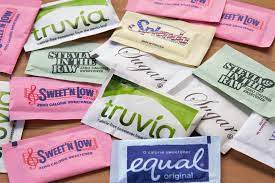
Non-nutritive sweeteners (NNSs) (e.g. Stevia, erythritol, Splenda, monk fruit, allulose) are not sugar. But that does not mean they are necessarily good for you.
As I mention in this video, they are a part of the group of foods in “the Gray Area” i.e. research has not come to a consensus view yet—and here’s why.
On the one hand, NNSs have shown evidence as an effective weight-loss tool. While it’s true that some studies have found a correlation to increased weight, in the randomized controlled trials there seems to be a neutral or positive effect on weight.
This makes sense if you pair it with research done on eating at a caloric deficit (taking in less calories than you burn). If I replace my Coke with Diet Coke, that’s less calories, so hypothetically, I should be able to lose more weight.
But, weight-gain isn’t the chief concern with NNS. Long-term health is.
The main concerns right now with NNSs seem to be: (1) impact on the gut and (2) potentially long-term disease. But, again, there doesn’t really seem to be consensus. These are just concerns that need to be further researched.
Here comes my personal (not necessarily scientific) opinion: sweeteners fail the smell test.
Intuitively, things like stevia and monk fruit seems like a workaround. And workarounds are usually workarounds because what you are trying to work around the work. In my experience, avoiding the hard part of anything rarely comes without a cost.
You’re telling me you can drink Diet Coke, which is basically the same tastiness as regular Coke, without any cost to the body or brain? I don’t buy it.
Keto cereals have tons of stevia, monk fruit, and allulose, and they taste like candy. You’re telling me I can eat a cereal that tastes equivalent to Cinnamon Toast Crunch that’s completely healthy? That it has no downside? Grow up.
Look, to be clear, I’m not saying NNSs are definitely not healthy.
Maybe monk fruit is the key to weight-loss. Maybe stevia is the one workaround that actually works. Maybe allulose and erythritol are the first ‘something for nothing’ trades in history of mankind.
Maybe.
But I doubt it.
Misconception #4: Sugar is “toxic” and it’s the *only* enemy.
More accurate: added sugar is associated with poor health outcomes, and is one of the several things you should limit, including saturated fat, alcohol, and highly processed meats and grains.
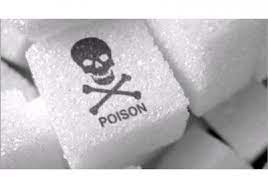
As I established at the beginning, everyone already agrees that added sugar is not healthy. With that said, understand this, too: it’s not the “real” enemy and it’s not “toxic.”
Rat poison is toxic. If you, like big Joe, “the gas man” (from Dumb & Dumber), consume at rat poison burger, you are probably going to die.
But, if you eat a Twinkie, you will not have to call poison control. In fact, if you eat only Twinkies and similar vending machine sugary junk, and you’re eating less calories than you burn, you’ll probably lose weight and fat and lower you inflammation, just like this professor proved.
Added sugar should be limited. Yes, we get it. But it’s just one of several things that, when consumed in excess, likely decrease your long-term health prospects.
When someone says “sugar is the one toxic, evil enemy,” they’re probably selling you a diet, supplement, or new line of keto cookies. And whenever someone uses the word “evil,” like we’re in a Marvel comic book, you should be weary. This is a key tactic of the persuasive demigod, and it’s baseless.
Here’s why this all matters: it diverts attention from other, equally unhealthy things.
The only point of Gary Taubes writing a book called “The Case Against Sugar,” when everyone already agrees that added sugar is consensus unhealthy, is to exonerate other “enemies,” like eating excess saturated fat.
This is a classic false dichotomy—a misleading “either / or” distinction between two extremes, as if they are the only choices. It’s step one of any class on rhetoric or in the book of despots, litigators, revolutionaries, and charlatans. The idea is to create a single, clear enemy, build the case against that enemy, and finally, show a savior-like alternative.
The truth: there are several things that you should limit, not just sugar. Most consensus research also advises to reduce saturated fat and limit, eliminate alcohol, and minimize heavily processed foods.
The bottom line: it’s not either / or—it’s all.
Summary
To sum up my rant, if you want to eat based on science and not fear or comic book ideology, you should know the following things:
- Added sugar and SSBs are consensus unhealthy. Yes, most research says SSBs and free sugar should be limited to less than 10% or 5% of calories.
- Whole fruit is different than free sugar and fruit juice. Yes, whole fruit has sugar, but when wrapped in fiber and other lovely things, the body processes it differently than added sugar or fruit juice. The consensus research advises daily whole fruit consumption (despite what Tim Ferriss’ crack squad of researchers came back with).
- NNSs have no clear consensus, but they fail the smell test. NNSs we are currently unsure about, but I’d personally be shocked if they turn out good for you long term.
- Added sugar is not the *only* “enemy.” Stop listening to “sugar is toxic” crowd. Toxic waste is toxic. Added sugar is just one of the things you should limit. Another one of those things is saturated fat. Another one is alcohol.
Besos,
Justy
